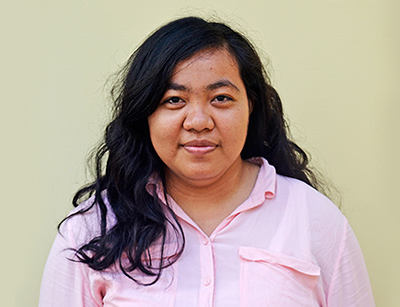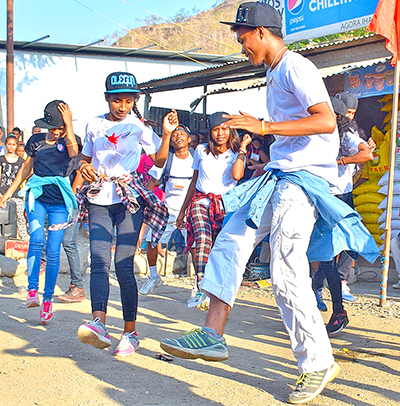Words against Gender based Violence
Date:
“I was bullied by some boys, but it didn’t really occur to me that it was a bad thing, it was a normal thing. We grew up believing that it is normal that boys will bully us, it is normal that boys will get to do things instead of us”
– Mariani Vicente Kijong
Her name is Mariani Vicente Kijong and she begun her blog one year ago. She, along with other 19 participants, were in NGO Ba Futuru, to participate in the 3-day Creative Writing workshop.
This is one of the six art-based workshop that were run by NGO Ba Futuru in close collaboration with UN Women in Timor-Leste. Those activities are included in the Preventing and Addressing Violence against Women and Girls Programme that UN Women is implementing in Albania, Mexico and Timor-Leste with the support from the European Union.
Growing up and living in Dili, most of her life, Mariani feels that it is not a safe place for her as well as other women to live. “Dili hasn't been a safe place for women. Women are afraid to walk in the night. Women are afraid to exercise in the early morning,” she explained.
Violence was considered a normalcy in her community: “Before, I used to think that my childhood was free from violence. This view however, changed after I participated in the workshop. After this workshop, I started to believe that, even though I didn’t get harmed, I nonetheless, experienced a psychological pressure in my family and my community. This is too a form of violence. Such experience is one of the reasons I started to write.”
Not that writing is a new thing for Mariani.
“I write about issues that are relevant to the people, general things like government spending and also simple customary practices people do in Timor-Leste, like how people always bang metal during lunar eclipse,” she continued.
After the 3-day workshop, Mariani and her team participated in the Festival Laloran, an exciting opportunity for Timorese artist and young people to express themselves and their ideas about gender, safety and social changes across the Capital Dili. It is a part of the 16 Days of Activism against Gender-based Violence observed in galvanising commitments around the world to putting an end to violence against women and girls.
Through the festival in Dili, Mariani hopes that, “the youth, particularly male youth, are getting inspired to take actions to end violence based on gender through various art-medium, including writing. Through writing, we can raise important issues to our leaders and to open their mind. It will also help build their characters. I have a great hope that we will see some changes in our culture of violence and that we will be able to uproot it from our society," she stated with a great sense of optimism.
Mariani plans to write more on the issues of gender, violence and masculinity.
“I really believe in the power of words. I believe that words can change people. I have, personally, seen changes among my friends who were moved by what they have read. They began to open their minds and see that some things that are considered as normalcy are not (always) right. They began to understand that words too can hurt."
Mariani, who is until recently working with the National Commission for Fight against HIV/AIDS, will pursue her Master's degree at Osaka University, Japan.

About the project
The Preventing and Addressing Violence against Women and Girls Programme in Albania, Mexico, and Timor-Leste is supported by the European Union.

